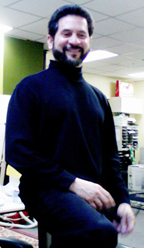NOTE FROM THE EDITOR:
Dear readers,
Do you believe the people in the U.S. are becoming less and less intelligent and that their increased use of artificial intelligence like computers and social media have anything to do with it? The following article, written by Ray Williams in the science magazine Psycholgy Today could open a new way of thinking on the subject. This is the First Part of a Series of Two.
by Ray Williams
psychologytoday.com
There is a growing and disturbing trend of anti-intellectual elitism in American culture. It’s the dismissal of science, the arts, and humanities and their replacement by entertainment, self-righteousness, ignorance, and deliberate gullibility.
Susan Jacoby, author of The Age of American Unreason, says in an article in the Washington Post, “Dumbness, to paraphrase the late senator Daniel Patrick Moynihan, has been steadily defined downward for several decades, by a combination of heretofore irresistible forces. These include the triumph of video culture over print culture; a disjunction between Americans’ rising level of formal education and their shaky grasp of basic geography, science and history; and the fusion of anti-rationalism with anti-intellectualism.”
There has been a long tradition of anti-intellectualism in America, unlike most other Western countries. Richard Hofstadter, who won a Pulitzer Prize in 1964 for his book, Anti-Intellectualism In American Life, describes how the vast underlying foundations of anti-elite, anti-reason and anti-science have been infused into America’s political and social fabric. Famous science fiction writer Isaac Asimov once said:
“There is a cult of ignorance in the United States, and there has always been. The strain of anti-intellectualism has been a constant thread winding its way through our political and cultural life, nurtured by the false notion that democracy means that my ignorance is just as good as your knowledge.”
Mark Bauerlein, in his book, The Dumbest Generation, reveals how a whole generation of youth is being dumbed down by their aversion to reading anything of substance and their addiction to digital “crap” via social media.
Journalist Charles Pierce, author of Idiot America, adds another perspective:
“The rise of idiot America today represents – for profit mainly, but also and more cynically, for political advantage in the pursuit of power – the breakdown of a consensus that the pursuit of knowledge is a good. It also represents the ascendancy of the notion that the people whom we should trust the least are the people who best know what they are talking about. In the new media age, everybody is an expert.”
“There’s a pervasive suspicion of rights, privileges, knowledge and specialization,” says Catherine Liu, the author of American Idyll: Academic Antielitism as Cultural Critique and a film and media studies professor at University of California. The very mission of universities has changed, argues Liu. “We don’t educate people anymore. We train them to get jobs.”
Part of the reason for the rising anti-intellectualism can be found in the declining state of education in the U.S. compared to other advanced countries:
After leading the world for decades in 25-34 year olds with university degrees, the U.S. is now in 12th place. The World Economic Forum ranked the U.S. at 52nd among 139 nations in the quality of its university math and science instruction in 2010. Nearly 50 percent of all graduate students in the sciences in the U.S. are foreigners, most of whom are returning to their home countries;
The Oklahoma Council of Public Affairs commissioned a civic education poll among public school students. A surprising 77 percent didn’t know that George Washington was the first President; couldn’t name Thomas Jefferson as the author of the Declaration of Independence; and only 2.8 percent of the students actually passed the citizenship test. Along similar lines, the Goldwater Institute of Phoenix did the same survey and only 3.5 percent of students passed the civics test;
According to the National Research Council report, only 28 percent of high school science teachers consistently follow the National Research Council guidelines on teaching evolution, and 13 percent of those teachers explicitly advocate creationism or “intelligent design;”
Eighteen percent of Americans still believe that the sun revolves around the earth, according to a Gallup poll;
The American Association of State Colleges and Universities report on education shows that the U.S. ranks second among all nations in the proportion of the population aged 35-64 with a college degree, but 19th in the percentage of those aged 25-34 with an associate or high school diploma, which means that for the first time, the educational attainment of young people will be lower than their parents;
Seventy-four percent of Republicans in the U.S. Senate and 53 percent in the House of Representatives deny the validity of climate change despite the findings of the U.S. National Academy of Sciences and every other significant scientific organization in the world;
According to the 2009 National Assessment of Educational Progress, 68 percent of public school children in the U.S. do not read proficiently by the time they finish third grade. And the U.S. News & World reported that barely 50 percent of students are ready for college level reading when they graduate. SECOND PART TO CONTINUE ON NEXT WEEK EDITION.



